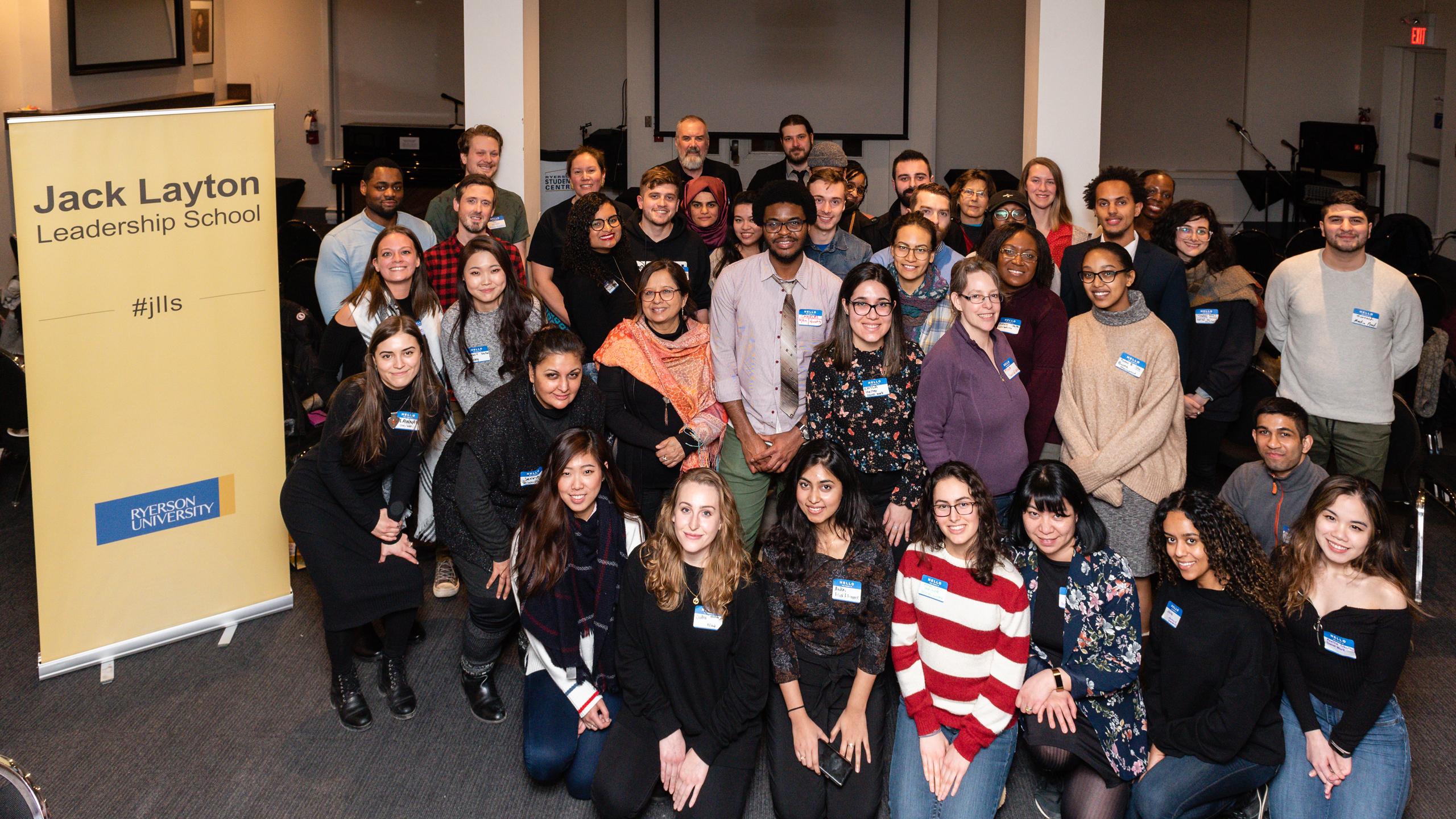By Lidia Abraha
While most students were on vacation, relaxing or studying over reading week, nearly 60 students were on campus learning about social justice organizing at the Jack Layton Leadership School (JLLS).
The school is a three-day intensive program for students and community members to learn about social justice organizing. Attendees went through a series of talks from distinguished activists like Olivia Chow, Kiki Roach, Jake Payne and Waubkuniikwe.
The attendees ranged in age, race, sexuality, gender and discipline according to Ken Moffatt, the Jack Layton Chair and a professor at the school of social work.
“We had a full school, with full participation, over two days, in the middle of reading week and that’s hope,” said Moffatt. He’s hopeful that youth interest in social justice is alive and well.
“So many people walked into the room with their own critiques of (social issues), they’re already self-aware, they’re so committed to change, they want a more equitable world, a more equal world, a more fair world,” said Moffatt.
Victoria Atteh, a third year arts and contemporary studies student, said she attended the school to enhance her learning of social justice. As an international student, Atteh is interested in immigrant rights, and deconstructing the misconception that international students don’t take advantage of opportunities in Canada.
“Everything that you have lived [through] is knowledge that you can bring to the cause, and social justice is more than organizing and getting stamped laws,” she said. “It’s about creating conversations and disrupting conversations that are not productive in any way.”
Anika Zaman, a second year international economics and finance student said she looks forward to apply what she has learned at (JLLS) to her program.
“Within my program, [and] knowing all of the policies and knowing all of the governmental ways and how to finance them [but] I want to know all of the systematic ways to actually bring a change,” said Zaman.
Moffatt was surprised to hear about the diversity in student’s discipline and reasons why they came to the school.
“In university settings we tend to work in disciplinary silos and one of the advantages of having a school such as this, is that it’s campus wide and you have students from all across campus [like] arts, business, [Faculty of Communication and Design], community services,” he said.
The curriculum this year taught about the history of trans activism, Indigenous organizing, a guided walk focused on homelessness and the different strategies to social justice organizing.













Leave a Reply